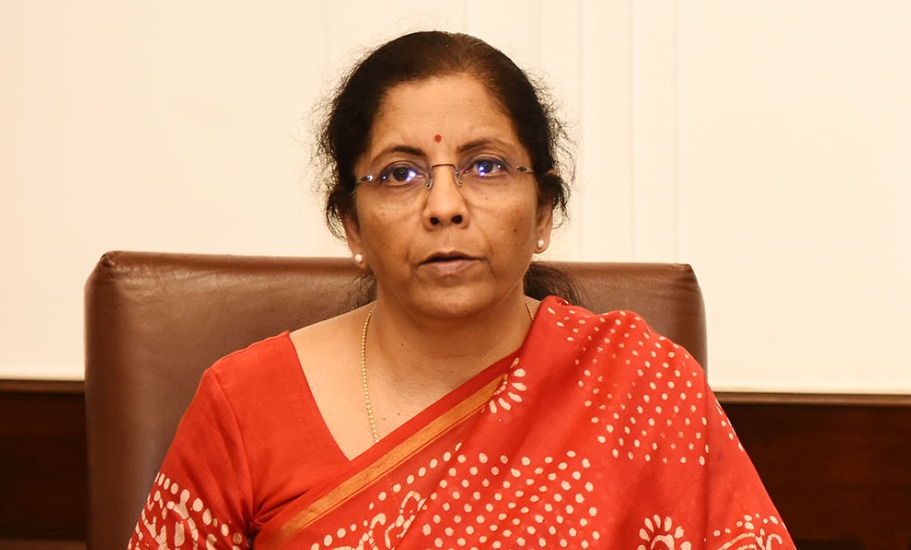
Investors fight for compensation as govt says Devas-Antrix deal is ‘fraud on India’
Nirmala Sitharaman says Antrix did not appoint an arbitrator for itself in 2011, and the Centre is now struggling to save taxpayers’ money

The decades-old Antrix-Devas legal wrangle took a fresh turn earlier this week when the Supreme Court upheld the liquidation of Devas Multimedia. At a press conference the next day, Finance Minister Nirmala Sitharaman said the SC verdict is “proof of the Congress’ misuse of power” and “fraud on India”.
Foreign investors in Bengaluru-based Devas, meanwhile, are engaged in a tough fight for compensation for the company’s cancelled 2005 satellite deal with Antrix Corporation, the commercial arm of the Indian Space Research Organisation (ISRO).
The original deal
In January 2005, Devas signed a deal with Antrix, under which the latter would build, launch and operate two satellites, with the latter taking a lease for 90% of the satellite transponder capacity. The idea was for Devas to use the capacity to offer hybrid satellite and terrestrial communication services throughout India.
At ₹1,00 crore, an S-band spectrum of 70 MHz was added to the deal — normally, this is used only by security forces and state-run telecom entities.
Also watch: Elon Musk says Tesla to accept dogecoin for merchandise
Over the subsequent years, media reports alleged that the deal, had it gone through, could have cost the government exchequer a loss of over ₹2 lakh-crore. The contract was quid pro quo for certain favours, it was reported. In February 2011, the Manmohan Singh government cancelled the deal citing ‘security reasons’.
Legal action by foreign investors
In August 2016, the CBI accused former ISRO chief G Madhavan Nair and other senior officials of the organisation of facilitating ₹578 crore in wrongful gains that went to Devas. They were also charge-sheeted.
Meanwhile, foreign investors in Devas moved arbitration courts abroad to recover their money. The Paris-headquartered International Chamber of Commerce (ICC), in September 2017, awarded Devas $1.3 billion in compensation. Separately, Deutsche Telekom, which had invested in Devas, moved the United Nations Commission on International Trade Law (Uncitral). In June 2019, the Uncitral tribunal found India in breach of a German bilateral investment treaty.
Once again, in January 2020, three Mauritius-based entities linked to Devas and holding a 37.5% stake in the firm moved the US Columbia district court for confirmation of the Uncitral order. In October that year, a US federal court for the Western District of Washington confirmed ICC’s 2017 award, and directed Antrix to pay the entity $1.2 billion. However, the very next month, the Supreme Court stayed the US court order.
In January 2021, Antrix introduced a winding up petition against Devas under the Companies Act. The National Company Law Tribunal (NCLT) admitted the petition. Devas moved the National Company Law Appellate Tribunal (NCLAT), which upheld the NCLT order.
Seizure of assets
Devas investors, meanwhile, sought to recover their investments by seizing the Indian government’s assets. They claimed that by cancelling the original deal, India was in breach of bilateral treaties. Late last year, a Canadian court in Quebec allowed the seizure of the assets of Air India and the Airport Authority of India (AAI) held with IATA, the global airlines association. By then, Air India had been disinvested to the Tata Group. The Canadian court subsequently quashed/amended its own rulings on the AI and AAI assets.
On Monday, January 17, the SC upheld the NCLAT verdict, saying the deal is “infected with the poison of fraud”. “It is a case of fraud of a huge magnitude which cannot be brushed under the carpet,” it added. This means Devas would have to be wound down; else, it may again trigger a chain of global events.
Finance Minister’s take
Drawing on the SC verdict, Sitharaman said the original deal is “proof of the Congress’ misuse of power”. The government will oppose the international award granted to Devas, she emphasised.
Sitharaman went on say the government is striving hard to save taxpayers’ money from being used to pay Devas investors. To support her allegations of fraud by the UPA government, she said when arbitration began in 2011, Antrix was asked to appoint an arbitrator to defend the government, which it did not.
“It was a fraud of the Congress, for the Congress, by the Congress. The fraud in the Antrix-Devas deal was obvious and the Supreme Court’s order was proof of the Congress’ misuse of power,” she said. “This is what the greed of the UPA has done. The government is fighting in every court to make sure the fraud doesn’t get away.”


